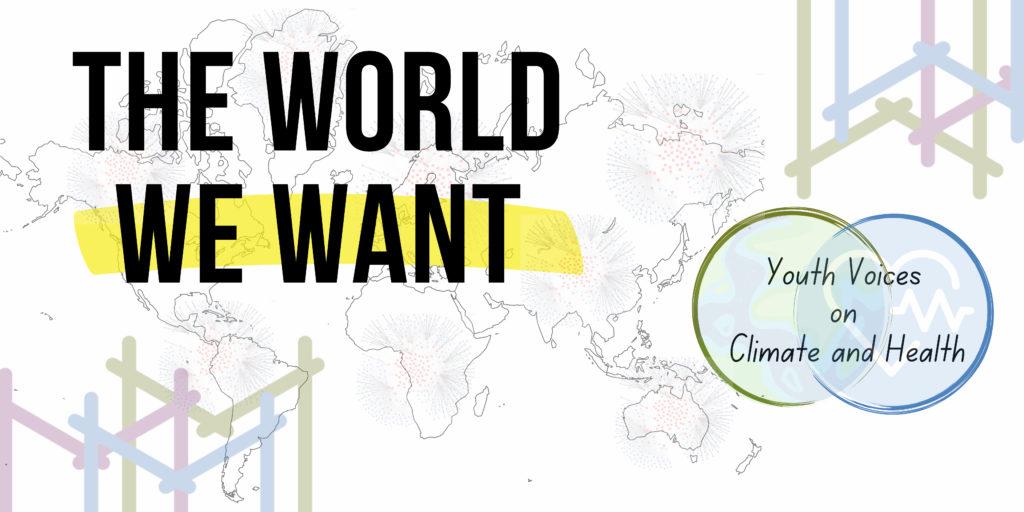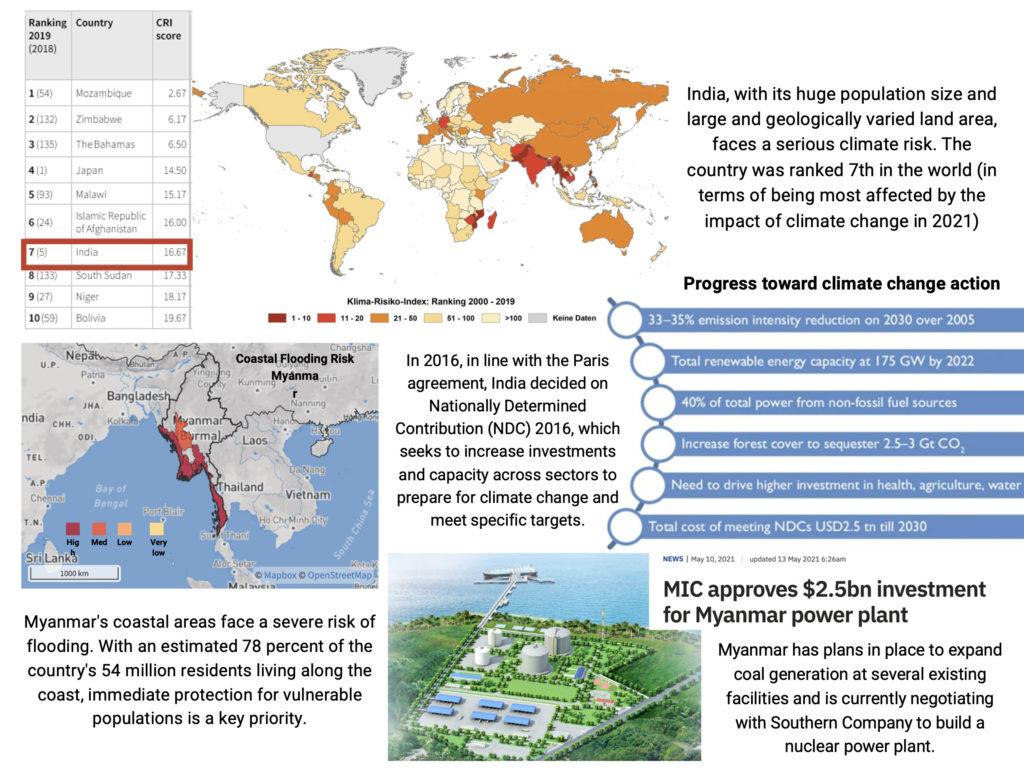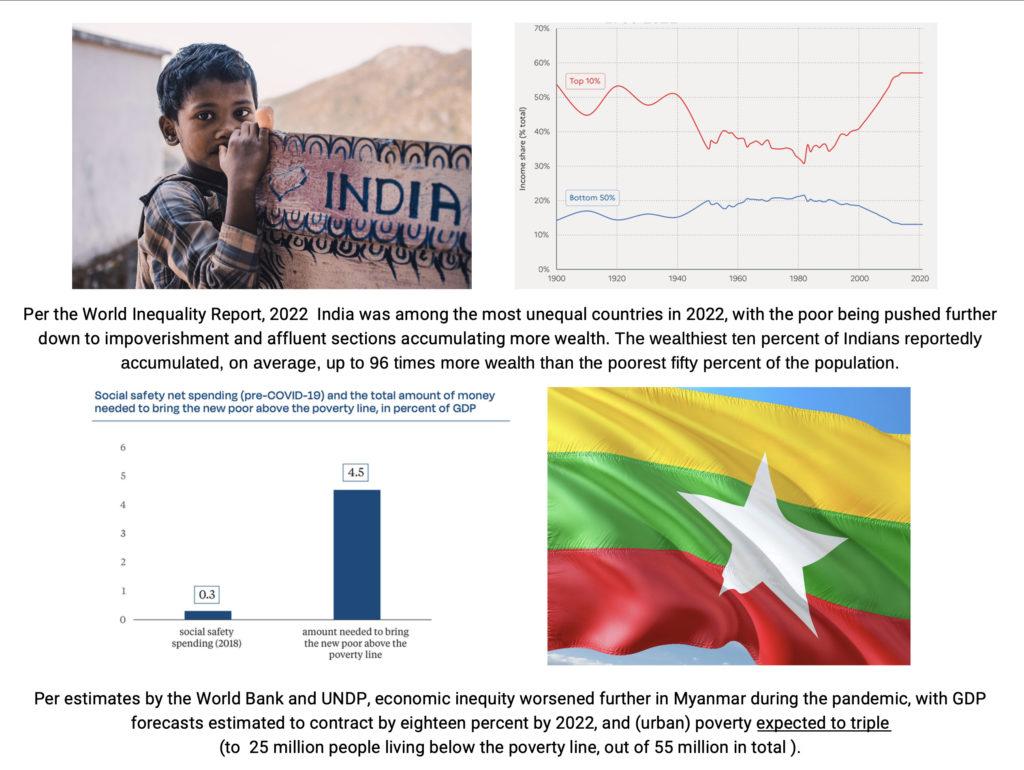
In January 2022, global health stalwarts gathered in Bangkok for the annual Prince Mahidol Award Conference (PMAC). Against the backdrop of a frightening global economic crisis and ever-widening health inequities exacerbated by the protracted COVID-19 pandemic, PMAC 2022 was befittingly centered around the theme, “The World We Want: Actions Towards a Sustainable, Fairer and Healthier Society”.
As early career Health Policy and Systems Researchers from the South Asia Region, we had the opportunity to act as rapporteurs and capture fascinating insights from some of the main conference sessions that fed into the (recently published) PMAC 2022 report. Below we present our introspection structured around the three PMAC sub-themes: 1) Megatrends and Futuristic Points of View; 2) Learning from the COVID-19 Pandemic to Better Prepare for Tomorrow’s Challenges, and 3) Scaling up Efforts to Address the Climate Crisis and Building Forward Greener. While presenting some overall thematic implications of the sessions and discussions, we also zoom in on our home countries, India and Myanmar.
Under subtheme 1, PMAC 2022 listed a number of megatrends including: “rapidly expanding economic inequities between regions, non-communicable diseases; “population, migration, and refugees”, “advocacy of new approaches to economics”, “changing geopolitical alliances, the decline of multilateralism, and increased risks of national and international conflicts”, “growing technological inequalities” and the “need for strengthened health systems”. Here we focus on the megatrend of “rapidly growing economic inequities within and between countries”—to showcase the gravity of the current situation concerning our own countries.
In line with estimates from the World Inequality Report 2022, which looked at the income/wealth distribution of nations through a political/gender lens, multiple sessions noted the ever-widening inequalities in the wake of COVID-19. In case you were wondering, that includes India and Myanmar.

While PMAC discussions under this theme centered around ‘fairness’, they went beyond addressing economic inequalities alone, also raising pertinent questions regarding the nature and characteristics of global healthcare delivery systems, pandemic preparedness and response etc. Given the possibility of an increasing number and frequency of future pandemics, the role of leadership and a ‘whole of society approach’ was emphasized throughout the conference to reinforce health systems’ resilience.
The COVID-19 pandemic is unlikely to be the last pandemic caused by zoonotic infections. At the time of writing, India stands second in terms of total confirmed cases and third in terms of COVID-19 deaths in the world. Moreover, the country also witnessed large-scale disruption of lives and livelihoods in various waves. In Myanmar, the pandemic response, especially at the primary care level, was disrupted and weak. The situation further worsened during the civil disobedience by health staff against the military intervention. As many health programs ceased to exist, access to the healthcare system, which is critical for providing timely services, responding to crises, and fostering public confidence (e.g., vaccinations), was severely limited during the pandemic, especially among vulnerable populations.
Nonetheless, the pandemic provides us with a window of opportunity to innovate, rebuild, and reimagine resilient health systems, whether in India, Myanmar or elsewhere. PMAC sessions echoed the knowledge-implementation gap between existing frameworks for health systems strengthening and the urgent need to prioritize organizational capacity, political will, and effective governance for future pandemic preparedness with an emphasis on people-centered PHC, while keeping in mind the complexity of health systems.
The PMAC discussions under this subtheme shed light on the common anthropogenic connections between the drivers underpinning the emergence of COVID-19 and the (accelerating) climate crisis. The climate crisis is already exerting pressure on Low and Middle-Income Countries (LMICs) in myriad ways, including adverse effects on population health, increased infectious diseases (and mortality), a rise in respiratory/cardiovascular/neurological diseases. Despite (some) evidence of COVID restrictions, lockdowns, and business closures resulting in reduced greenhouse emissions, better air, and water quality, and wildlife conservation, these positive side-effects were temporary. Once restrictions were removed, things went back to ‘normal’ very quickly.
The continued reliance of LMICs such as Myanmar and India on fossil fuels doesn’t exactly help either. Sustainable solutions and a pivot to greener, renewable sources of energy are urgently needed. Recently, there have been some advancements in these technologies. The extent to which these initiatives are sustained with shifting government priorities toward rapid industrialization in the wake of huge economic disruptions and political unrest in the post-pandemic era remains to be seen, though.

In several sessions, the need for political action based on cost-benefit analysis of climate impact and expanding policy frameworks was emphasized. A ‘One Health’ approach, with sufficient political will and financial support, was called for as a means to substantially reduce climate and (future) pandemic threats.
The overarching consensus across PMAC subthemes was that global governance and favorable geopolitics are crucial enablers for actions advocating for a fairer and healthier society. Since PMAC 2022, against the backdrop of a protracted pandemic recovery, the global community has unfortunately been unable to realize calls for transnational and trans-institutional cooperation. Worse, some other megatrends have actually deteriorated over the past months.
Inflection points in geopolitical conflicts, humanitarian crises, and economic collapse across Ukraine, Afghanistan, and Sri Lanka have severely affected the (cautious) COVID-19 economic recovery and are further jeopardizing the Sustainable Development Goals (SDGs). Global shockwaves from the Ukraine fallout, in particular, have led to an “assault on some of the most vulnerable people and countries in the world” and the collapse of several critical health institutions and services. PMAC 2022 emphasized the pertinent need to address the socio-political dimensions of the megatrends by strengthening political will, trust, and global stewardship as well as rebuilding capacities to tackle the dual burden of future pandemics and the climate crisis. End of June 2022, this rings more true than ever.
With the Seventh Global Symposium on Health Systems Research (HSR2022) in Bogotá, Colombia, just months away, it will be interesting to see how the symposium’s thematic focus on ‘Health Systems Performance in the Political Agenda’ builds upon these dimensions and fosters discussions on global transformation for health and equity in the 21st century – for “the World We Want”.
At the very least it appears we’ll have our work cut out.